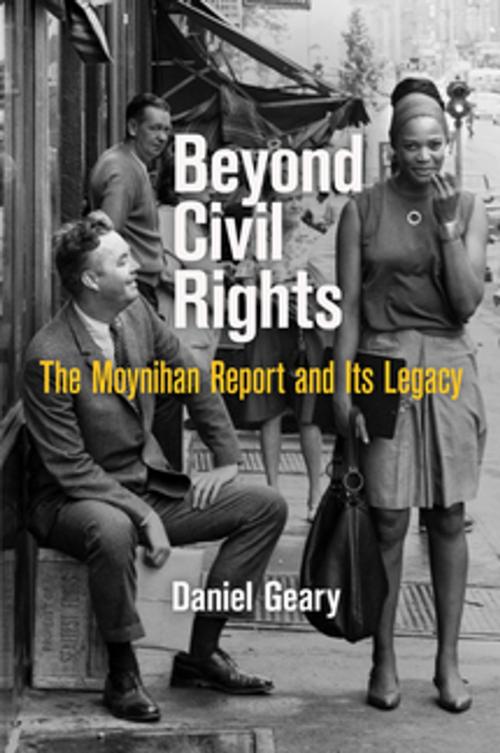Beyond Civil Rights
The Moynihan Report and Its Legacy
Nonfiction, Social & Cultural Studies, Political Science, Government, Social Policy, Social Science, Sociology, History| Author: | Daniel Geary | ISBN: | 9780812291520 |
| Publisher: | University of Pennsylvania Press, Inc. | Publication: | June 5, 2015 |
| Imprint: | University of Pennsylvania Press | Language: | English |
| Author: | Daniel Geary |
| ISBN: | 9780812291520 |
| Publisher: | University of Pennsylvania Press, Inc. |
| Publication: | June 5, 2015 |
| Imprint: | University of Pennsylvania Press |
| Language: | English |
Shortly after the 1964 Civil Rights Act, Daniel Patrick Moynihan authored a government report titled The Negro Family: A Case for National Action that captured the attention of President Lyndon Johnson. Responding to the demands of African American activists that the United States go beyond civil rights to secure economic justice, Moynihan thought his analysis of black families highlighted socioeconomic inequality. However, the report's central argument that poor families headed by single mothers inhibited African American progress touched off a heated controversy. The long-running dispute over Moynihan's conclusions changed how Americans talk about race, the family, and poverty.
Fifty years after its publication, the Moynihan Report remains a touchstone in contemporary racial politics, cited by President Barack Obama and Congressman Paul Ryan among others. Beyond Civil Rights offers the definitive history of the Moynihan Report controversy. Focusing on competing interpretations of the report from the mid-1960s to the late 1970s, Geary demonstrates its significance for liberals, conservatives, neoconservatives, civil rights leaders, Black Power activists, and feminists. He also illustrates the pitfalls of discussing racial inequality primarily in terms of family structure. Beyond Civil Rights captures a watershed moment in American history that reveals the roots of current political divisions and the stakes of a public debate that has extended for decades.
Shortly after the 1964 Civil Rights Act, Daniel Patrick Moynihan authored a government report titled The Negro Family: A Case for National Action that captured the attention of President Lyndon Johnson. Responding to the demands of African American activists that the United States go beyond civil rights to secure economic justice, Moynihan thought his analysis of black families highlighted socioeconomic inequality. However, the report's central argument that poor families headed by single mothers inhibited African American progress touched off a heated controversy. The long-running dispute over Moynihan's conclusions changed how Americans talk about race, the family, and poverty.
Fifty years after its publication, the Moynihan Report remains a touchstone in contemporary racial politics, cited by President Barack Obama and Congressman Paul Ryan among others. Beyond Civil Rights offers the definitive history of the Moynihan Report controversy. Focusing on competing interpretations of the report from the mid-1960s to the late 1970s, Geary demonstrates its significance for liberals, conservatives, neoconservatives, civil rights leaders, Black Power activists, and feminists. He also illustrates the pitfalls of discussing racial inequality primarily in terms of family structure. Beyond Civil Rights captures a watershed moment in American history that reveals the roots of current political divisions and the stakes of a public debate that has extended for decades.















